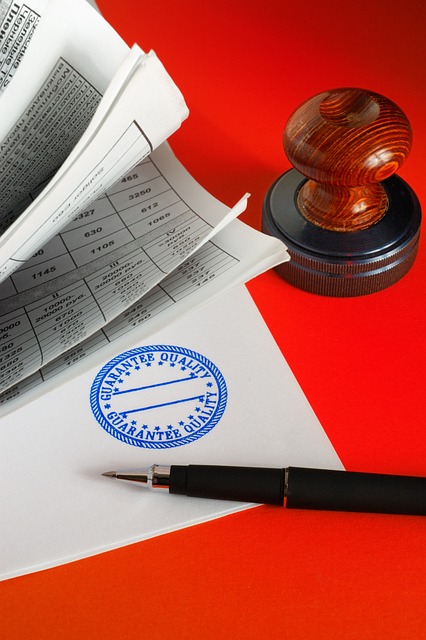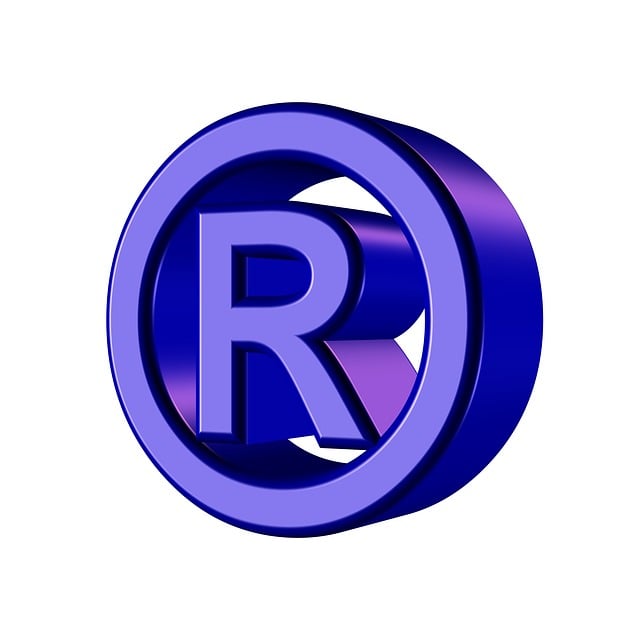When translating UK licenses and permits, it's crucial to engage professional translation services specialized in legal documents to ensure precision and adherence to both source and target language legal nuances. A reputable provider with expertise in UK licensing terminologies and a track record of handling sensitive content should be chosen for accurate, certified translations that meet administrative and legal standards. Consider the linguistic proficiency of the target audience and verify the service's ability to deliver clear, reliable timelines and maintain confidentiality. By adhering to these guidelines and utilizing UK-focused translation services, you can ensure the accurate translation of your licenses and permits for international use, thereby avoiding misunderstandings or legal disputes. Always request an accuracy certificate or guarantee from your provider, and if necessary, a sample translation to evaluate their capabilities before proceeding with the entire document. This ensures that your translations are not only linguistically precise but also legally sound, facilitating smooth transactions and compliance across different jurisdictions when dealing with UK licenses and permits that stands up to regulatory scrutiny. The end-to-end accuracy, and finally, a quality assurance process that guarantees the integrity of legal documents, which often require a higher standard of precision due to the complexities or ambiguities are resolved in the final translation is free from errors, ready for submission to any UK authority or international counterpart.
navigating the complexities of international operations often necessitates the precise translation of UK licenses and permits. This article delves into the critical role professional translation services play in ensuring accurate documentation for cross-border activities. We will explore common UK licenses and permits that frequently require translation, emphasizing the importance of certified translations for legal compliance. Additionally, we’ll guide you through the array of translation services available for UK documents, highlight key considerations when choosing a service provider, and detail the translation process to achieve language fluency. With case studies illustrating successful translations for international use and practical tips for a smooth experience, this article is an indispensable resource for anyone dealing with UK licenses and permits in a multilingual context.
- Understanding the Need for Professional Translation of UK Licenses and Permits
- The Role of Accurate Documentation in Cross-Border Operations
- Overview of Common UK Licenses and Permits Subject to Translation
- The Importance of Certified Translations for Legal Compliance
- Navigating the Types of Translation Services Available for UK Documents
- Key Considerations When Selecting a Translation Service Provider in the UK
- The Translation Process: From Source to Target Language Fluency
- Ensuring Compliance with UK and EU Legal Frameworks Through Translation
- Case Studies: Successful Translations of Licenses and Permits for International Use
- Tips for a Smooth Translation Experience in the Context of UK Licenses and Permits
Understanding the Need for Professional Translation of UK Licenses and Permits

When organisations or individuals require legal documents such as licenses and permits to be translated from or into English within the context of the UK, the importance of leveraging professional translation services cannot be overstated. The precision and accuracy inherent in professional translations ensure that the legal content is conveyed correctly, avoiding any ambiguity or misinterpretation. This is crucial as licenses and permits are often critical to the operation of businesses, compliance with regulations, and individual rights and responsibilities within the UK’s framework. Missteps due to poor translation can lead to complications, legal issues, or even revocation of licenses, which underscores the necessity for translators who are not only proficient in language but also familiar with the legal nuances specific to UK documentation.
Professional translation services specialising in UK licenses and permits offer a range of benefits, including cultural sensitivity, linguistic expertise, and an understanding of the legal context. These services are provided by translators who are often native speakers or have an equivalent level of proficiency, ensuring that translations are not only accurate but also idiomatically appropriate. Furthermore, these experts often possess specialized knowledge in various fields relevant to UK licensing, such as healthcare, finance, and education, which enables them to handle technical language with the necessary care. By choosing professional translation services, clients can navigate international waters with confidence, secure in the knowledge that their documents will be accurately translated and respected by all parties involved.
The Role of Accurate Documentation in Cross-Border Operations

Navigating cross-border operations necessitates a meticulous approach to documentation, particularly when it involves licenses and permits. The precision and clarity of such documents are paramount, as they not only facilitate legal compliance but also ensure the validity and recognition of credentials across different jurisdictions. In the UK, translation services play a pivotal role in this process by accurately conveying the contents of original documents into the target language. These services are essential for businesses and individuals alike, ensuring that all licensing details are conveyed without ambiguity or error. The expertise of professional UK translation services is crucial in providing translations that meet legal standards and are accepted by regulatory bodies within and outside the UK. This is particularly important for sectors such as healthcare, finance, and engineering, where specific terminology and technical language must be accurately translated to prevent misinterpretation and maintain operational integrity. By leveraging the capabilities of these specialized translation services, businesses can navigate international regulations with greater confidence and ease, thereby reducing the risk of legal complications and fostering smoother cross-border operations.
Overview of Common UK Licenses and Permits Subject to Translation

When engaging in business or legal matters in the United Kingdom, it is often necessary to secure various licenses and permits that are regulated by UK authorities. These documents are critical for operations within specific industries, ensuring compliance with local laws and regulations. Common examples include alcohol licenses for selling or serving alcoholic beverages, food safety certificates for running a restaurant or café, and environmental permits for managing waste or handling hazardous materials. Additionally, financial services providers may require authorisation from the Financial Conduct Authority (FCA), which is also subject to translation if the recipient is not proficient in English.
For non-English speakers or international entities dealing with UK licenses and permits, professional translation services play a pivotal role. These services are essential for accurately conveying the terms, conditions, and legal implications of these documents. A competent UK translation service will provide precise translations that reflect the original content’s intent, ensuring that all parties involved have a clear understanding of the obligations and rights stipulated in the licenses and permits. This is particularly important when dealing with legally binding documents where misinterpretation or errors can lead to significant complications or penalties.
The Importance of Certified Translations for Legal Compliance

When navigating the complexities of legal documentation in the UK, obtaining accurate and certified translations for licenses and permits is paramount. The UK’s diverse linguistic landscape necessitates precise translation services to ensure that all legal texts are comprehensible and compliant with UK laws. Certified translations serve as a bridge between individuals and authorities, providing an exact rendition of the original document in the required language. These translations are not only a testament to the accuracy of the content but also carry legal weight, making them officially recognizable by UK regulatory bodies.
In the context of legal compliance, the precision of translations cannot be overstated. A slight misinterpretation or error could lead to significant repercussions, from delays in legal processes to complete invalidation of documents. Therefore, engaging professional translation services that specialize in licenses and permits for the UK market is crucial. These experts ensure that all nuances, terms, and conditions are accurately conveyed, thereby upholding the integrity and legality of the original document. This meticulous approach not only facilitates smoother interactions with UK government agencies but also safeguards the rights and interests of the individuals or entities involved.
Navigating the Types of Translation Services Available for UK Documents

When it comes to translating UK licenses and permits, the process can be complex due to the variety of documents and the specificity of their content. Professional translation services offer a range of options tailored to accurately convey the legal and technical nuances inherent in these documents. These services cater to various types of UK documentation, ensuring that each translation is precise and compliant with both the source and target language requirements. Whether it’s a driver’s license, a business permit, or certification for professional practice, translators who specialize in legal and official documents can provide certified translations that are accepted by government bodies and regulatory institutions. These experts employ a rigorous process to guarantee the accuracy of translations, which is crucial for the legality and validity of UK licenses and permits when used internationally. Clients can select from different service levels depending on their needs, such as standard or certified translations, with additional options for expedited services if time sensitivity is a factor. With a focus on maintaining the integrity and meaning of the original text, these translation services are indispensable for individuals and organizations dealing with UK documents in a multilingual context.
Key Considerations When Selecting a Translation Service Provider in the UK

When engaging a translation service provider for UK licenses and permits, it is imperative to consider the provider’s expertise in legal documentation. Accuracy is paramount in such contexts; thus, opt for a service with a proven track record in delivering precise translations that stand up to scrutiny by regulatory bodies. Look for providers with professional indemnity insurance and a team of native-speaking translators specialising in legal terminology, ensuring your documents are not only translated but also adapted to the target language’s legal lexicon. Additionally, verify their familiarity with the specific type of license or permit you require, as this will guarantee the translation addresses all necessary points and is compliant with UK regulations.
The selected translation service should also be well-versed in the official languages of the UK, which include English, Welsh, Scottish Gaelic, and British Sign Language. This multilingual competence is crucial, as it ensures that your translations are culturally relevant and contextually appropriate. Furthermore, consider a provider’s capacity for handling urgent requests, their ability to offer clear timelines, and their commitment to confidentiality, especially if the information contained within the licenses or permits is sensitive. A reputable translation service will provide these assurances and more, safeguarding your legal standing in the UK and facilitating a seamless transition with accurate translations of your licenses and permits.
The Translation Process: From Source to Target Language Fluency

When engaging professional translation services for UK licenses and permits, the process encompasses a meticulous series of steps to ensure accuracy and compliance with legal standards. The journey begins with the source text’s extraction, which includes all pertinent details from the original UK license or permit. This text is then carefully analyzed by a team of linguistic experts who possess native fluency in both the source and target languages. Their proficiency ensures that nuances, idioms, and industry-specific terminology are correctly interpreted and translated, maintaining the integrity of the content.
The translation process involves a multi-stage workflow. Initially, the text is translated into the target language, followed by a review phase where the translation is scrutinized for adherence to both the original meaning and the linguistic norms of the target language. This is crucial as UK licenses and permits often contain specialized vocabulary that requires precise handling to avoid misinterpretation. The subsequent editing phase corrects any discrepancies, ensuring that the final document is a true reflection of the source material’s intent. Finally, proofreading is conducted to eliminate any linguistic errors, guaranteeing that the translated licenses and permits are ready for official use in their new context. Throughout this process, the focus remains on delivering translations that are not only accurate but also legally and culturally relevant for the intended audience.
Ensuring Compliance with UK and EU Legal Frameworks Through Translation

navigating the intricacies of legal documentation in the UK requires meticulous attention to detail, particularly when it involves translating licenses and permits from one language to another. Professionals operating within this domain must not only be adept at linguistic nuances but also well-versed in both UK and EU legal frameworks. The translation of such documents is a complex task that goes beyond simple word-for-word conversion; it necessitates a deep understanding of the legal context to ensure that the translated text maintains its original intent and compliance with the relevant laws. UK translation services specialising in legal translations are equipped with expert translators who are often legally trained, ensuring that all translations meet the stringent requirements set forth by both UK and EU regulations. This includes adherence to the Official Languages (Scotland) Act 2003, European Union documentation standards, and the General Data Protection Regulation (GDPR), which is crucial for maintaining data privacy and security during the translation process. By leveraging these specialized services, businesses and individuals can navigate international regulations with confidence, knowing that their licenses and permits are accurately represented in the target language, thereby facilitating smoother operations across borders.
Case Studies: Successful Translations of Licenses and Permits for International Use

When businesses or individuals operating in the UK seek to expand their reach internationally, the translation of licenses and permits is a critical step to ensure compliance with foreign regulations. A case study that exemplifies this necessity is that of a pharmaceutical company looking to export its products to the European Union. The company required translations of their UK-issued licenses and permits into multiple languages to satisfy the EU’s regulatory requirements. By leveraging specialized UK translation services, the company successfully navigated the linguistic and legal complexities, thus avoiding costly delays and potential legal issues. This successful translation not only facilitated the company’s entry into the European market but also ensured the continued safety and efficacy of their products.
Another case study involves a high-net-worth individual who acquired UK real estate and needed to transfer property rights abroad. The process necessitated precise translations of land registry documents and property licenses from English to the target language. The UK translation services provider employed experts with a deep understanding of both legal and real estate terminology, ensuring accurate translations that were legally recognized in the destination country. This meticulous approach allowed for seamless transactions and avoided any potential misunderstandings or legal disputes, demonstrating the indispensable role of professional translations in cross-border operations. Both cases highlight the importance of engaging UK translation services to accurately translate licenses and permits for international use, thereby mitigating risks and facilitating smooth operations across borders.
Tips for a Smooth Translation Experience in the Context of UK Licenses and Permits

When navigating the process of translating UK licenses and permits, it’s crucial to engage with professional translation services that specialize in legal documents. These experts not only understand the nuances of language but are also well-versed in the specific jargon and terminologies unique to UK licensing regulations. To ensure a smooth translation experience, begin by selecting a service provider with a proven track record in handling such sensitive and technical material. Look for providers who offer accuracy certificates or guarantees to validate the authenticity of their translations. Additionally, communicate clearly with your chosen service about the nature of the documents, including any specific requirements or deadlines you may have. This will allow them to allocate the appropriate resources and expertise to your project.
Another key consideration for a seamless translation process is choosing a language pair that aligns with both parties’ capabilities. If the target audience does not have a native level of proficiency in the translated language, opt for a translation service that provides documents certified for official use. This adds an extra layer of credibility and ensures that translations meet legal and administrative standards. Furthermore, consider requesting a sample translation to assess the quality of the service before proceeding with the full document. By taking these steps, you can significantly reduce the risk of miscommunication or errors that could lead to complications in the acceptance and validity of UK licenses and permits in different jurisdictions.
When engaging with international markets, the translation of UK licenses and permits is not just a matter of linguistic equivalence but a critical component for legal validity and operational success. This article has underscored the multifaceted nature of professional translation services in this context, highlighting their indispensable role in cross-border operations. Whether it’s understanding the necessity of precise documentation or navigating the complexities of UK licenses and permits subject to translation, the insights provided ensure that businesses and individuals can confidently engage with international partners and regulatory bodies. By adhering to the key considerations for selecting a reputable service provider and understanding the translation process, one can rest assured that their documents will convey the intended meaning while maintaining compliance with both UK and EU legal frameworks. The case studies showcased demonstrate the successful application of these translations in diverse settings worldwide. In conclusion, leveraging professional UK translation services is essential for anyone seeking to transcend language barriers, ensuring that licenses and permits are legally recognized and functionally effective across different jurisdictions.
